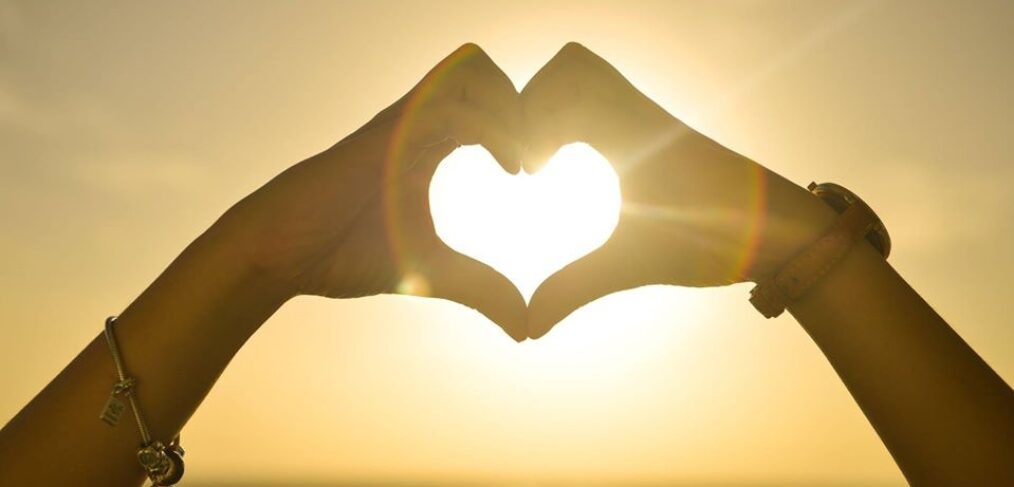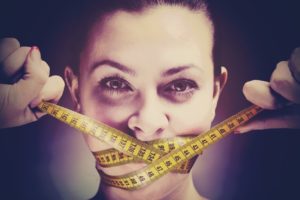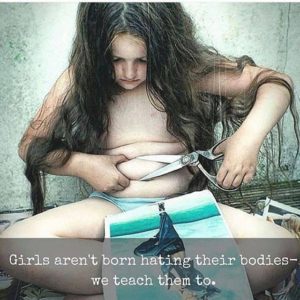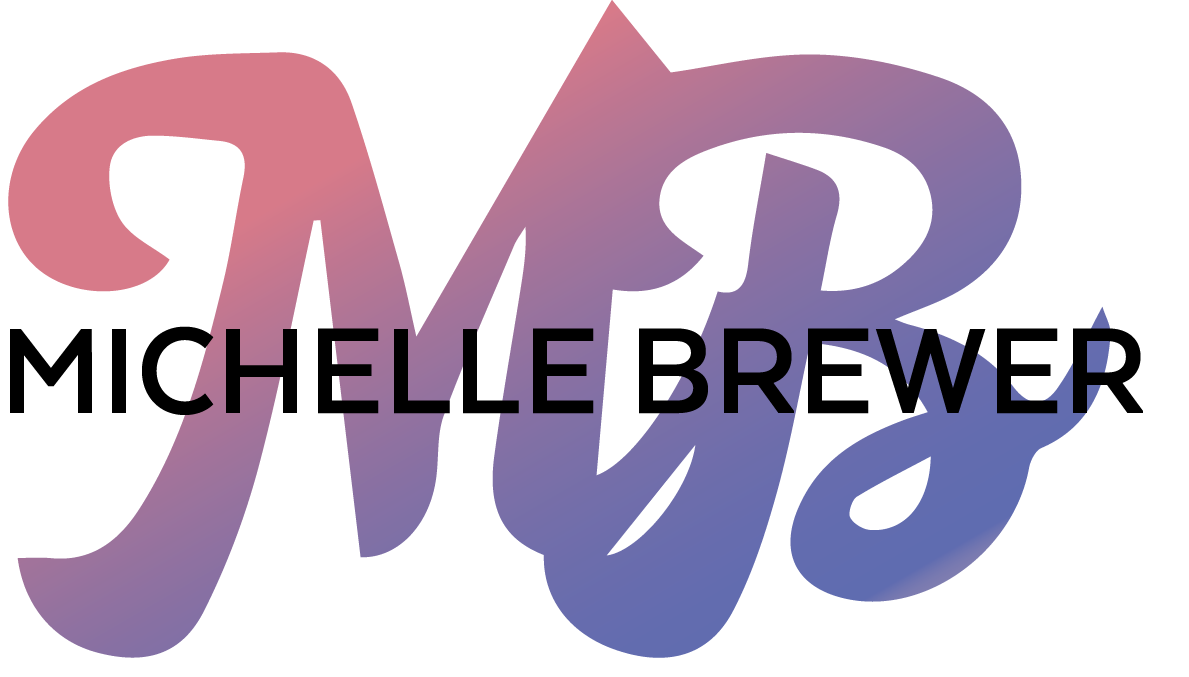
My Year of Blogging Shamelessly: Part Four of Six
One woman’s journey from her body to her soul letting her relationship with food show the way.
Suddenly, my English mind and my French mouth came together effortlessly. I was able to speak to my young interviewer passionately and forcefully (although certainly not perfectly) about my convictions: that we women use fat for protection, dieting for control and distraction; that weighing ourselves on a scale belies our desire for social approval in spite of protests to the contrary; that our physical hunger is trustworthy and our spiritual hungers are important; that the reasons we eat when we’re not hungry (or we don’t eat when we are) are the jewels that can give us insight into the most precious parts of ourselves.
Our personal stories of pain are planted as seeds that take root in the fertile soil of a patriarchal, fat-phobic society. And the patriarchal, fat-shaming society creates personal stories of pain. So it goes. This version of patriarchal society limits women by equating our worth with our size, and then shames us when we dare to step out of that equation. Just look at gossip magazine images and their finger-pointing headlines. We get called out both for being too big and too small, too sexy and too plain, wearing clothes that cover too little and too much. It is a contradictory, confusing, confining and crazy-making world in which to have a female body. It creates the situation where we want to run for the cover of fat and the numbing power of food. Sometimes we eat just to get out of the line of fire. We rebel through fat; we conform through dieting. Either way, we sacrifice ourselves by sacrificing the wisdom of our hunger.
 Men can and do have weight issues. They can overeat and get fat to protect themselves from vulnerability. But for men, fat is typically not a social instrument of shame that cuts deep into their souls and splits them in half through self-hatred. They do have a shame knife. But theirs is of a different variety. For men shame is around displaying weakness, softness, emotions. If they expose this side of themselves (and it does exist), their masculinity is summarily and aggressively called into question, and consequently their “man-card” get revoked.
Men can and do have weight issues. They can overeat and get fat to protect themselves from vulnerability. But for men, fat is typically not a social instrument of shame that cuts deep into their souls and splits them in half through self-hatred. They do have a shame knife. But theirs is of a different variety. For men shame is around displaying weakness, softness, emotions. If they expose this side of themselves (and it does exist), their masculinity is summarily and aggressively called into question, and consequently their “man-card” get revoked.
It is in the showing of weakness where the stigma bites for men, exhibiting private pain in a public manner. That is not acceptable. Strictly verboten. Fat is wearing your weakness on the outside in a society where you are supposed to keep it all in. Let nothing bother you. The ethos of masculinity is emotional mastery and self-control. Weight is showing that you are leaking, failing at the job description.
I have not heard of dieting reaching the same epidemic proportions in men as it does in women (where at least one in four North American women is reported to be dieting at any given time). For us, successful dieting [conformity to expectations, dismissing hunger and physical self-mastery and control] appears to be an end in itself. These are  just as important as reaching desired body size. In both cases, they are external and thus untenable measures of self-worth. For men, fat shows a shameful problem: fat -> vulnerability -> shame. For women, fat is shame: fat -> shame.
just as important as reaching desired body size. In both cases, they are external and thus untenable measures of self-worth. For men, fat shows a shameful problem: fat -> vulnerability -> shame. For women, fat is shame: fat -> shame.
I explained to my interviewer my take on the position that ‘fat is a feminist issue.’ As I see it, the external, explicit social, political and economic limitations on women of yore have not disappeared. But rather they have changed form. The domination has been internalized as immobilizing self-talk about weight and appearance that we marshal at ourselves and then at other women. In so doing, we become the direct agents of our own oppression. It leaves us with a pervasive feeling of inadequacy and shame that stops us from standing in our power and leading our biggest lives.
I believe that inspired, mobilizing attention is required both inside and outside ourselves. I go to therapy and on eating retreats to access and heal the most vulnerable and most powerful parts of myself. I share my knowledge and my truth with others to make the world more just for women—to do my part to help women unwind from the programming and [body] shame that consumes and imprisons us.
The work on ourselves and on society are interwoven (tissés as I learned from the francophones). They are essential to and inform one another. It is not enough to only change ourselves (in this case, have and accept a body size that reflects our aligning our eating with our hunger signals). Our transformation requires us to change the world as well. And in order to do that effectively, we need to walk in the world as a better, more whole version of ourselves. The best version of ourselves is able to heal the world in a way our broken selves cannot. We can’t fully heal ourselves without taking on the unjust, hurtful parts of the society we live in. And we can’t bring about social change without simultaneously looking into ourselves to heal the hurt injustices have caused us. We don’t have to heal the entire world to heal ourselves. But we do need to engage with it in some way. Doing them together confronts and involves us at a whole new level. That is what the film festival was for me. The world part.
***
 While the experience of shame is universal, its triggers are highly gendered. In Brené Brown’s work, there are twelve categories that emerged that elicit a deep sense of feeling unworthy and unlovable. For women, the fiercest is related to appearance—specifically weight, beauty and age. We are told we should be nice, thin, modest and use all available resources on appearance. To make matters worse, these messages are part of a web of unattainable, competing and contradictory expectations. As women, we find ourselves in a straightjacket. We are disempowered because we can never measure up. For men, she found that shame is singular and straightforward. Its force bears down on perceived weakness. In both genders, the triggers reinforce societal norms. They stop us from being our true selves and in relationship with one another.
While the experience of shame is universal, its triggers are highly gendered. In Brené Brown’s work, there are twelve categories that emerged that elicit a deep sense of feeling unworthy and unlovable. For women, the fiercest is related to appearance—specifically weight, beauty and age. We are told we should be nice, thin, modest and use all available resources on appearance. To make matters worse, these messages are part of a web of unattainable, competing and contradictory expectations. As women, we find ourselves in a straightjacket. We are disempowered because we can never measure up. For men, she found that shame is singular and straightforward. Its force bears down on perceived weakness. In both genders, the triggers reinforce societal norms. They stop us from being our true selves and in relationship with one another.
***
After that August, I felt damaged on every level. I mean with that history as my history, who would ever find me lovable? Worthy? It was just easier to tell myself that it really wasn’t so bad. Of course, that leaves me with trust issues when it comes to combining sex and love. Weight acts as a way for me to test people. I worry: will they like me in spite of the weight? Or if they don’t like me, I assume it is “because of” the weight. It shields me from feeling that the real me has been rejected. Two problems though. The shield is a high price to pay. It insulates and isolates me as much as it protects me. Puts any love I feel into doubt. And it doesn’t touch the buried belief that my body is not a safe place to be.
***
There came a point when I realized my student journalist and I were speaking to each other as though the rest of the world had fallen away. When we did finally look up, I noticed that both the producer and the cameraman were taking in every word. After we wrapped, the cameraman said he felt he had to tell me how moved he had been with what I had shared. The producer expressed that he had been part of many interviews over his career and the question almost always arises as to why the person being interviewed does what they do. Never had he heard anyone speak with such openness about themselves. I let him know that I work hard to cultivate that openness. Most of the time I’d rather hide. But vulnerability and authenticity are necessary if I am going to have the impact on women that I want to have to effect the change I want to effect. If I want women to be able to get past the body and eating shame to the feelings behind them, they need to know that someone understands and that they are not alone.
It is not easy for me to speak about myself the way I do. When I write like this, it feels excruciating and humiliating. It is like I am disclosing a dirty little secret that most women don’t want to admit to themselves let alone hear someone else say out loud. But I continue because it is too painful not to. I am not crazy and I am not quiet. I will not be defeated.


I just finished reading the first 4 parts of your blog and I am so touched and impressed. My favorite quote is “I am not crazy and I am not quiet.”
I always think about and imagine what could be accomplished in the world if we re-directed even a little of the energy and attention and money we are taught to spend on our appearance. It still enrages me on occasion.
Thank you for such an inspiring piece!
Thank-you Julianne. Each post has a sentence or two that comes right from my gut. You quoted my favourite as your favourite. You seem to me to be a woman who is not crazy or quiet either. My heart breaks for the way we so easily limit our self-worth to our appearance. It is revolutionary work to love our appearance and know that we are also so much more.
Gratitude, Michelle. I am moved. I am in awe of your formidable courage. Thank you for sharing yourself again and again. It continuously makes a difference in my life.
Thank-you Sarah. I feel you unflagging support in my life. Gratitude back to you.
❤️❤️❤️
Thankyou for doing what you do and being.
The picture of the little girl trying to cut off her tummy moved me to tears.
That should never be!
Again beautiful work, thank you
I know how you feel about the image of the girl trying to cut parts of her body off. But I think it is so awful because it hits home for those of us who are brave enough to be that honest and introspective about the effects of this society on us. Thank you for your kind words, Jeanne.